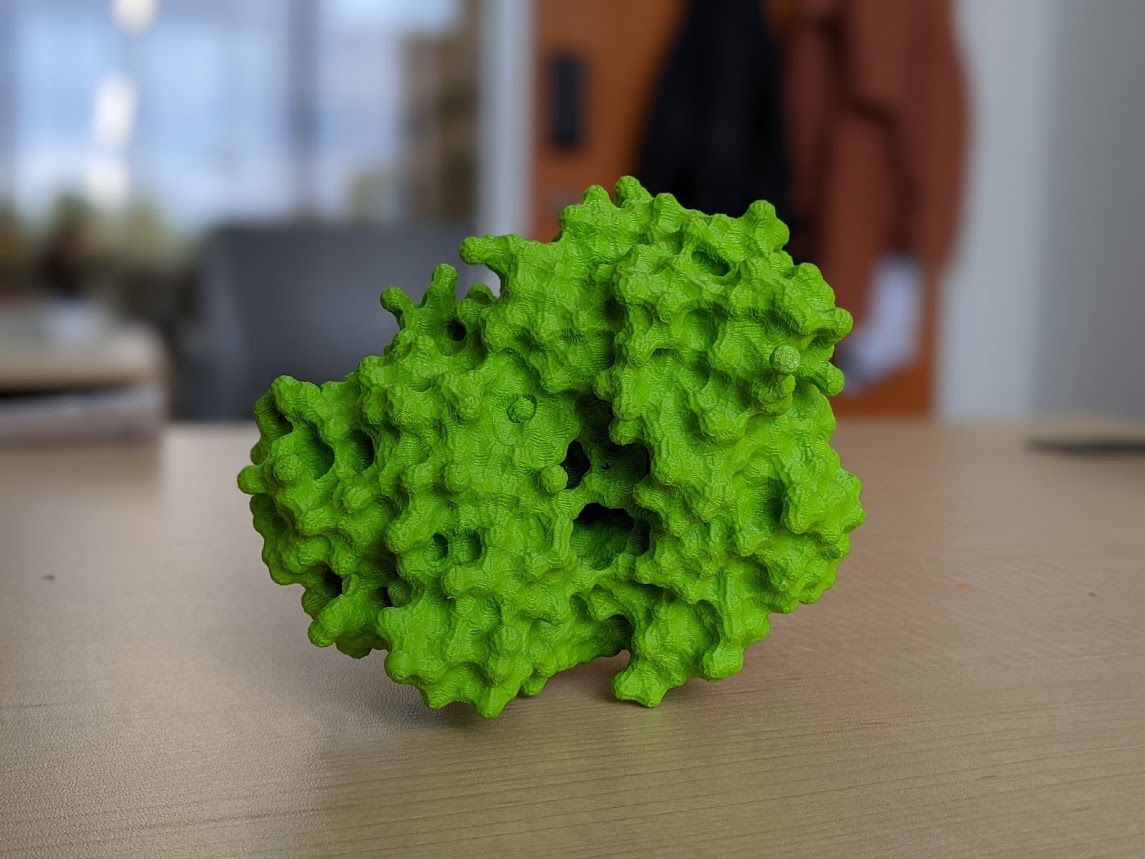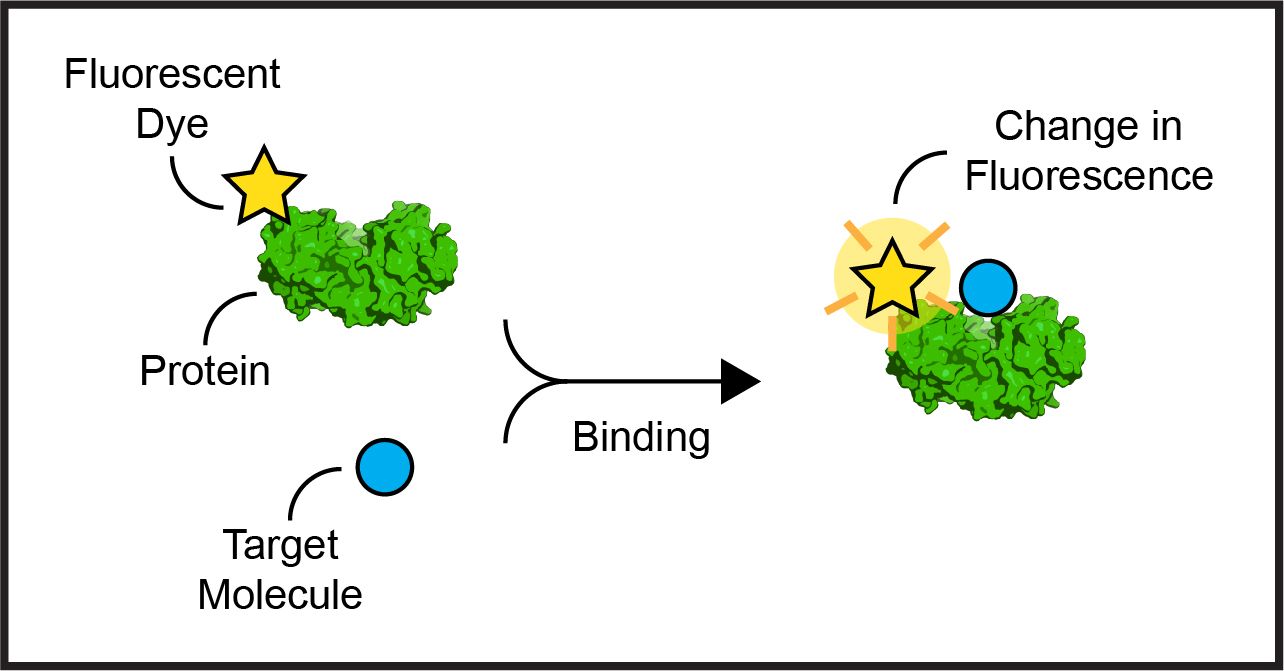Diversify your skills throughout your degree, whether you are an undergraduate or graduate student. If you are a science major, consider taking computer coding classes or management/marketing classes. One of the strengths of being at the University of Lethbridge is that you can take classes outside your major, and you never know when they could come in handy down the road.
Harland Brandon has taken every opportunity in his time at the University of Lethbridge to learn, connect and grow with the community around him. As with any journey there are winding paths, mountains to climb and hard left turns to persevere through. Continued perseverance paid dividends for Brandon. He successfully defended his PhD in March 2021 and is now working full time in the industry endeavours he founded with fellow alum and PhD candidate Luc Roberts (BSc ‘12) during his time in the academy.
Brandon started his academic career in 2008, starting with a BSc in Biochemistry. After his undergraduate degree he had a plan to get into medicine but joining the uLethbridge international Genetically Engineered Machines (iGEM) team changed his trajectory. “It was an eye-opening experience for me seeing scientific research and the new field of synthetic biology.” This experience, in addition to doing an independent study with Dr. Hans-Joachim (HJ) Wieden, solidified his path towards biophysics and biochemistry. At the time, Brandon had no idea that this project in Dr. Wieden’s lab would later become the foundation for this PhD thesis.
During his undergraduate degree he continued to work in Dr. Wieden’s lab and became determined to be the first person to discover something new about two particular proteins (HflX and YchF, for interested readers). These proteins implicate how bacteria produce new proteins, but the exact roles in this process are a mystery. By biochemically characterizing proteins of unknown functions, scientists can begin to determine if they would be good targets for future antibiotic development.
He figured the next logical step was to pursue graduate studies, first a Master of Science in 2013 and then transferring to the PhD program under Dr. Weiden the following year. “With the growing understanding of this process and the protein and RNA factors that facilitate it, we can begin to rationally design novel antibiotics to help combat antimicrobial resistance and the rise of multi-drug resistant ‘superbugs’.”
Superbugs are bacterial pathogens that have developed a resistance to antibiotics. This has been observed all over the world – so much so that The World Health Organization has declared antimicrobial resistance (AMR) as one of the top 10 global public health threats. “One of the major problems is that there have barely been any new classes of antibiotics developed over the past 50 years.” New antibiotics are needed to combat AMR, and Brandon’s work is a key step towards that goal.
While conducting this research, he also helped publish a book chapter, a review article, continue to be a part of the iGEM team as an advisor, and hold the role of Radioactive Lab Manager in Dr. Wieden’s lab. These connections enabled Brandon to team up with other uLethbridge graduate students and start his first company in 2013, Synbiologica. “Synbiologica ended up not being successful for many reasons, including my enrollment in graduate school which took time away from the company, but it started an entrepreneurial drive in me.” This drive, along with the experience he gained as an advisor and manager, prepared him well for his next start-up: Allos Bioscience Ltd.
Allos is a biotech company that aims to design and develop novel protein-based biosensors with a proprietary computational method developed by other graduate students in the lab of Dr. Wieden. In 2019 Brandon & his colleague Luc Roberts applied for the GreenSTEM fellowship, which provides funding to projects in the cleantech industry, to provide seed money for commercializing this method.


“I am basically applying my knowledge of protein biochemistry and my entrepreneurial training to Allos.” Allos is not creating these biosensors for AMR resistance, however the general principles and techniques for producing these biosensors is something Brandon refined during his PhD.
He is also continuing to collaborate with other uLethbidge alum, this year helping found another company alongside Roberts called Blue Sky Analytical Labs Ltd. “We are all quite proud of our University of Lethbridge backgrounds!” True to this sentiment, both Blue Sky and Allos recently hired co-op students from the University of Lethbridge with support from Mitacs, BioTalent Canada and BioAlberta.
After 13 years at the University of Lethbridge, Brandon has learned a thing or two. Knowing what he knows now, he would do a couple of things differently such as taking more classes to expand his skillset beyond the sciences. “If you are a science major, consider taking computer coding classes or management/marketing classes. I wish I had taken some marketing classes at some point during undergraduate or graduate school, as it would have helped me in starting Allos tremendously. Also, consider doing one or more co-ops during your degree. Getting experience in the field of how to apply your degree following graduate school can give insight into what other skills that you should try and learn before jumping into the workforce.”
If you would like to reach out to Allos and the team, or see what the company is pursuing next, check out their website. The team is also on Twitter, Instagram and LinkedIn.
Stay in Touch!
We are excited about your future and want to continue to follow your story. Please do stay in touch! We love nothing more than getting an unexpected update from one of our alums.
School of Graduate Studies: Facebook, Instagram, LinkedIn and Twitter
uLethbridge: Facebook, Instagram and Twitter
And be sure to keep your contact information up to date with Alumni Relations! It helps us all stay connected and the folks in Alumni Relations have all sorts of benefits and events to keep you involved in the uLethbridge family.